- Churchill Tax
VAT – When To Charge VAT On Supplies Made By Another Business

It can be convenient to charge your customer for goods or services supplied by other businesses as part of your overall supply on a single invoice. But as a recent case showed this can lumber you with an extra VAT bill. Why?
Who’s the supplier?
Deciding on how much VAT to charge a customer is often not as straightforward as you might think. For example, where you incorporate goods or services supplied by another business as part of your sale should you or the other business be responsible for accounting for the VAT?
Principal or agent?
The answer depends on whether you’re the VAT principal or agent. Where your role is agent, i.e. acting as a conduit for supplies made by another business, you only need to account for VAT on the amount you charge for supplies you make, while the other business accounts for the VAT on theirs.
TRAP:
If HMRC believes you’re making a supply as principal rather than as an agent it expects you to account for VAT on the full amount due from the customer, not just your supply etc. This was precisely the situation Secret Hotels2 Ltd (SH) found itself in which ultimately led to a court showdown with HMRC.
Booking agency
SH advertised rooms on behalf of hotels etc., but didn’t provide any accommodation itself. It considered that it was acting as an agent for the hotels. It even took the trouble to inform its customers in its terms of business that it “acts as Booking Agents on behalf of all hotels, apartments and villas featured on this website and your contract will be made with those accommodation providers”. But the court ruled that it was making supplies of accommodation as principal.
The disclosure factor
While UK law says a business is an agent for VAT purposes, where it discloses to customers full details of third party supplies included in its bill, EU law overrides this. It says that by incorporating another business’s supplies under its own banner it is the VAT principal.
Words are not enough
Although SH had clearly stated it was only an agent, in practice it both purchased accommodation from hotels and sold it on to customers using its own name. SH’s documentation and practice was that of a principal not an agent.
When might this rule apply?
The judgment in the SH case can apply in less obvious situations, such as where you recharge disbursements or include third party supplies as part of yours. For example, a building contractor might supply subsidiary services, e.g. sub-contractors using its name, but this means it’s acting as principal and so liable to account for VAT on the all supplies made by itself and its sub-contractors.
TIP:
If you intend to act as an agent for a supply, ensure that contracts etc. with suppliers state this and show the ultimate customer’s name. If you’re going to charge your customer for sourcing third party goods or services show these separately on your invoice from supplies made by the supplying business.
Conclusion
Unless conditions are met, you must account for VAT on the value of another business’s supply which you incorporate in your own, e.g. that of a sub-contractor. Contracts, invoices and other paperwork with the supplier and customer must show that you’re buying and selling as an agent.
